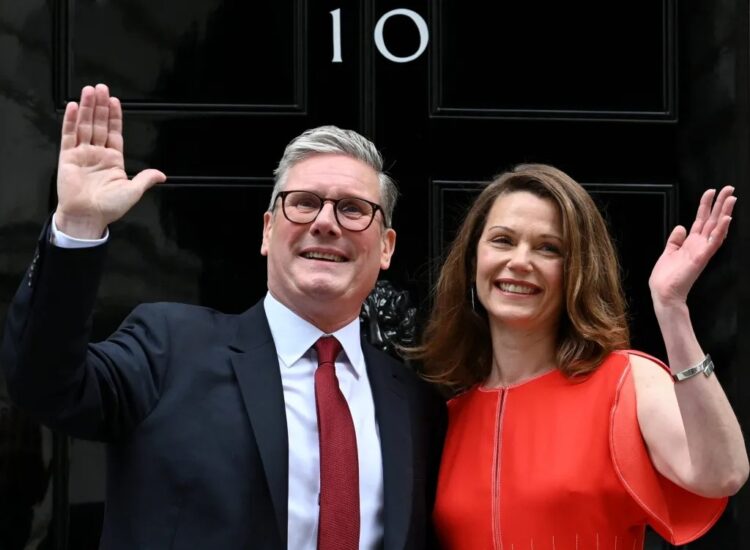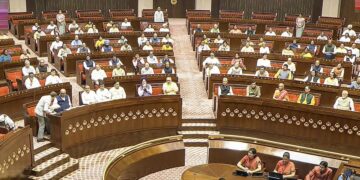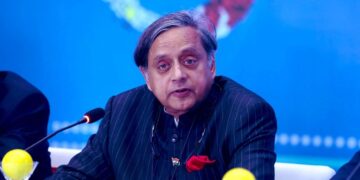The recent elections in the United Kingdom illustrated a clear mandate of change for the country, ending the 14 years of Conservative rule and the leader of the Labour Party, Keir Starmer taking the baton of Prime Ministership in his hands, succeeding Rishi Sunak.
The message was clear in Keir Starmer’s first speech as U.K. prime minister. “The work of change begins immediately.” Soon after Keir Starmer took office as the prime minister of the UK, he confirmed that the contentious Rwanda deportation scheme, passed by the Conservative government under PM Sunak in April, is “dead and buried”.
It was during the campaigning, that the Labour Party pledged to scrap the scheme which as per their data has cost 310m Euros as he promised to bring a much more efficient approach to tackle illegal immigration. Following a blueprint for asylum policy from more than a hundred refugees and human rights organizations who urged Starmer to change the course of policies of the Conservative Sunak government, it was noted that the party would end the gimmick of deporting illegal immigrants arriving in the UK to Rwanda. However, this is one of the concerns for Starmer’s Government as another daunting issue on his plate is working on the hospital crisis.
While the targets for elective care, emergency services, and cancer treatment have not been met since 2016, currently, the health concerns in the National Health Service’s history in the UK tops the polls of issues where waiting times have been the longest on record.
Similarly, the economic situation in the country is just as challenging. Ever since the COVID-19 pandemic, the United Kingdom has had one of the slowest recoveries despite being one of the major advanced economies in the world. The after-effects of Brexit continue to be felt, with the UK’s departure from the EU, imposing extra costs for little economic benefit.
The UK’s prison crisis is also a point of concern for the Starmer government as the country is just days away from running out of cells. It is likely that the new government will have to grapple with emergency measures, including more early releases to ease pressure. However, successive justice secretaries and Prime Ministers have chosen not to address the drivers of the crisis; in fact, some of them have added to it. Though the prior government’s projections implied that prisons would suffer a severe capacity crisis without a sudden course change, the Sunak government never made the change that was required.
How UK-India Ties Will Be Impacted?
With the new government taking shape, it’s vital to consider the implications for India, especially regarding Khalistan issues and the ties between the two nations. Before Keir Starmer’s leadership, under Jeremy Corbyn of the Labour Party, the relations between India-UK strained significantly as unwarranted interference in India’s internal matters became a point of contention between the two countries.
Notably, after the abolition of Article 370 in 2019, the Labour Party under Corbyn passed a resolution calling for ‘international intervention in J&K and an UN-led referendum’. This resolution triggered alienation between both India and British-Indians during the 2019 UK elections, which witnessed significant loss to the Labour Party.
Nonetheless, now with Starmer’s elections, he has pledged to take steps to repair the damage caused by his predecessor. To rekindle the strained India-UK ties and broaden his appeal prior to the UK elections, Starmer participated in Diwali and Holi celebrations, while his manifesto outlined a commitment to pursuing a ‘new strategic partnership’ with India. Additionally, during a meeting with Labour Friends of India, Starmer stressed that any constitutional issues in India are a matter for the Indian Parliament, adding that “Kashmir is a bilateral issue for India and Pakistan to resolve peacefully.” These developments offered reassurance to India, signaling a shift towards constructive engagement rather than interference.
However, it must be highlighted here that though Starmer has time and again spoken on the matter regarding Jammu and Kashmir, he has done quite little to address the contentious issue of Sikh seperatism that has been on rise in the recent times. Additionally, it is also concerning that at least two Labour MPs with known Khalistani sympathies have been elected to the British Parliament, Preet Kaur Gill and Tanmanjeet Singh Dhesi. Gill has been associated with the Smethwick Gurudwara, which houses a shrine for Khalistani terrorists, while Dhesi criticized India at a Referendum 2020 rally.
Another potential concern is the negotiations on India-UK FTA, which are expected to be completed by year’s end. This pivotal agreement positions India and the UK as significant players in the global economy, bolstering diplomatic ties and promising substantial economic gains. Though challenges remain particularly concerning Sikh separatism and the finalization of the FTA with India, it needs to be seen how these issues will be crucial in determining the future trajectory of India-UK relations under the Starmer administration.

















Comments